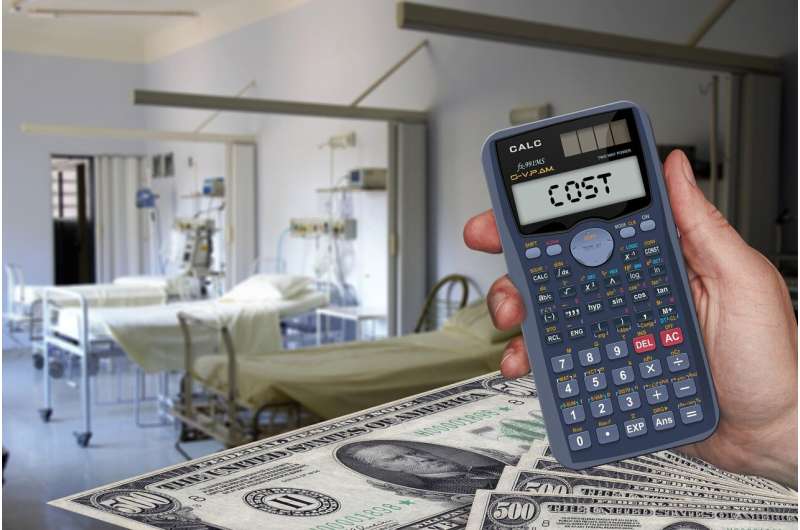This article has been reviewed according to Science X's editorial process and policies. Editors have highlighted the following attributes while ensuring the content's credibility:
fact-checked
trusted source
proofread
New report confirms devastating financial impact of diseases on households and a crippling lack of data

Literature review on out-of-pocket spending led by The George Institute for Global Health and NCD Alliance confirms devastating financial impact of noncommunicable diseases (NCDs) on households in low- and middle-income countries alongside a crippling lack of data.
A new 2023 umbrella review of recent literature on out-of-pocket spending for NCD treatment and care confirms that poor and marginalized groups are hit hardest by NCDs, with a greater economic burden observed among people living with NCDs in low- and middle-income countries (LMICs) compared to high-income countries.
The review makes clear that continued inaction will perpetuate an intergenerational cycle of disease and poverty, worsening inequality within and between nations. If leaders are to end this cycle, countries and regions need to get to work on gathering reliable, disaggregated health expenditure data on populations, and particularly in low-income countries.
Of the relevant peer-reviewed systematic reviews identified in the study, the majority focused only on high-income countries, or on a mix of high- and low- and middle-income countries. Just 5% of studies identified (4 of 75) were focused on low- and middle-income countries only, while no relevant systematic review was identified that looked at out-of-pocket spending for people living with NCDs in low-income countries.
Nevertheless, the review demonstrated that across countries, the people who are most likely to pay out-of-pocket for healthcare are the poor, marginalized groups, those living in rural areas, and very young and older persons.
Complemented by qualitative data provided by people living with NCDs directly, it is clear that living with an NCD—in all countries, but especially in low- and middle-income countries—can put individuals and households at extreme economic vulnerability, and treatment is often inaccessible due to the cost.
Treatment for NCDs like cancer and kidney disease are frequently catastrophic, forcing families to make sacrifices such as stopping children's education or buying inadequate food to save money. Alternatively, many people are simply unable to access treatment and die from their diseases.
In order to better understand the extent and effects of out-of-pocket spending on people living with NCDs in low-income countries and middle-income countries, reliable data that is disaggregated by region, age, disease, socio-economic status, sex and gender, as well as other critical dimensions of inequality is urgently needed. This data can then feed into developing solutions to relieve the economic burden of out-of-pocket healthcare spending, which will be an essential step to achieving Universal Health Coverage (UHC).




















